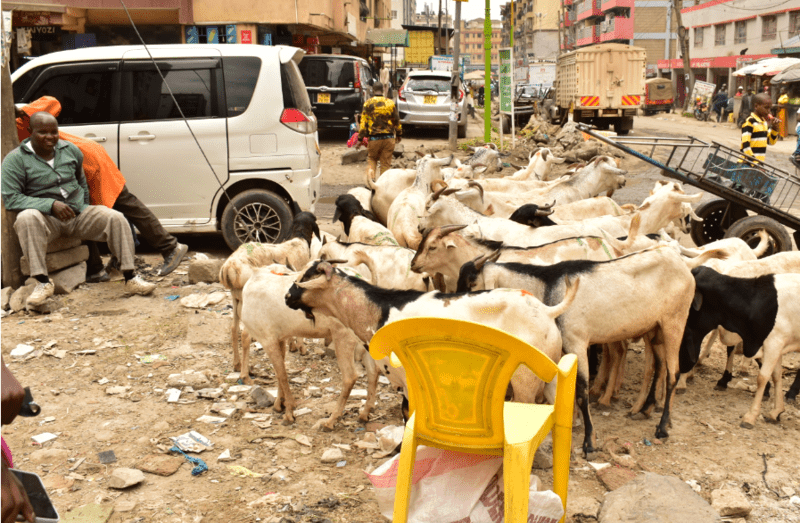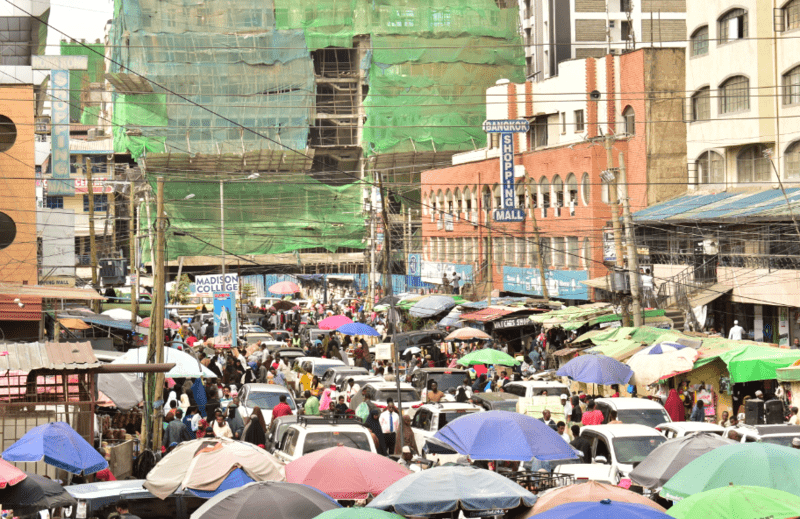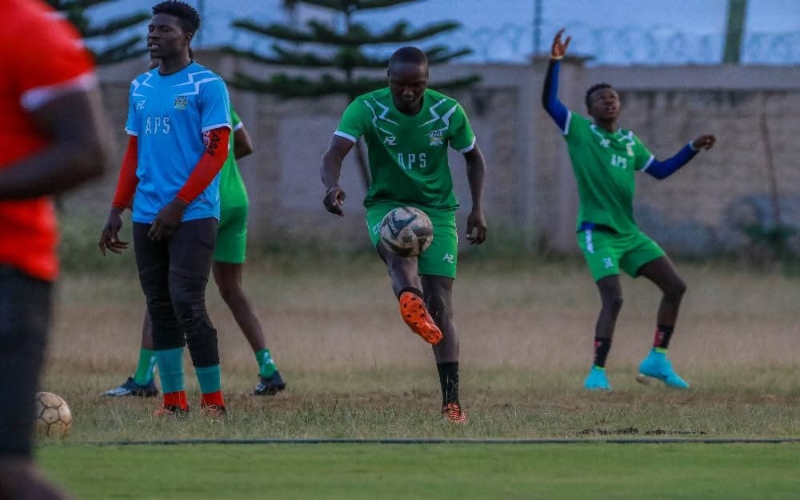Goat traders flock to Eastleigh streets on eve of Eid ul-Adha
![Goat traders flock to Eastleigh streets on eve of Eid ul-Adha - Traders selling goats in Carlifonia , Eastleigh ahead of Eid celebrations in June 2024. [Photo: Hafsa Hassan EV]](https://publish.eastleighvoice.co.ke/mugera_lock/uploads/2024/06/goat-2.png)
While many prefer to buy goats from Kiamaiko, the largest goat market in Nairobi, some traders have eased the burden by bringing the goats to Eastleigh.
As Muslims mark Arafah (a day before Eid ul-Adha) on Saturday in preparation for Eid celebrations on Sunday, business is booming in Eastleigh, with the goat trade taking centre stage.
Slaughtering a goat is a significant part of Eid celebrations, although different animals like cows and camels can also be slaughtered depending on one's capabilities.
More To Read
- Eastleigh boda boda riders adopt unique reflectors to boost safety, gain customer trust
- Eastleigh bustles with Christmas shoppers as holiday season kicks off early
- Tatu City hosts Muslim business community to explore new investment opportunities
- How community initiative is reviving Eastleigh’s cricket legacy
- Eastleigh MCA blames county officials for destruction of newly built Captain Mungai Street
- Youth football comes alive in Eastleigh as Fazam Academy clinches Moi Cup title
While many prefer to buy goats from Kiamaiko, the largest goat market in Nairobi, some traders have eased the burden by bringing the goats to Eastleigh.
Ali Nour and his counterparts arrived in Eastleigh last night with their goats, setting up camp in California in anticipation of good sales.
"We walked from Kiamaiko to Eastleigh with our animals because we know how important goats are for Eid celebrations. We've seen different customers coming since morning, and we hope to sell all the goats we brought," said Ali.
 Traders selling goats in Carlifonia , Eastleigh ahead of Eid celebrations. [Photo: Hafsa Hassan EV]
Traders selling goats in Carlifonia , Eastleigh ahead of Eid celebrations. [Photo: Hafsa Hassan EV]
He noted that despite some people still buying the goats, business is slower compared to last year. "Many of the buyers are men, but women also come to buy from us. We only hope the sales will be good."
Last year, the most expensive goat was sold between Sh7,000 and Sh8,000 during Eid, according to goat vendors from Kiamaiko.
As different people flock to Eastleigh to shop for food and spices in preparation for the celebration starting this evening, many of them have been fasting as recommended by the Islamic faith since they didn’t go to Hajj.
Ayan Maalim, a resident of Eastleigh, shared that this year's Eid is different compared to last year's. "This year, we are focusing on eating together as families and neighbours. We already bought a goat, and it will be slaughtered tomorrow. We plan to share it with our friends and the community," said Ayan.
She said unlike last year's Eid, which was marked by buying new clothes, this time her family didn’t buy any new clothes.
"We already bought clothes, so for me and my family, it will be a season of sharing and bonding together as we thank Allah for good health," she added.
 Residents flock to Eastleigh streets to buy food items ahead of Eid celebrations. [Photo: Hafsa Hassan EV]
Residents flock to Eastleigh streets to buy food items ahead of Eid celebrations. [Photo: Hafsa Hassan EV]
A portion of the meat from the sacrificed animal is distributed to the poor and vulnerable. Traditionally, one-third is kept for the family, another third is given to neighbours, and the remaining third is donated to those in need.
While Islam permits the sacrifice of cows and camels, many Muslims prefer goats to align with the tradition of Prophet Ibrahim.
In Kenya, the practice of Qurbani (animal sacrifice) is widespread among Muslims, who see it as a deeply spiritual act symbolising faith, obedience, and charity. Qurbani holds significant importance during Eid ul-Adha celebrations, fostering communal unity through shared devotion and generosity.
Unlike Eid ul-Fitr, where Muslims traditionally eat something before going to Eid prayers in the morning, during Eid (Eid ul-Adha), Muslims will fast before the prayers. The prayers are scheduled to start on Sunday at 7:30 am.
This year's Eid celebration is marked by unity, unlike past years with conflicting dates. The festivities have also seen women gathering at various locations to decorate themselves with henna, while men are getting new haircuts.
Before you go, how about joining our vibrant TikTok and YouTube communities for exciting video stories?
Top Stories Today












































